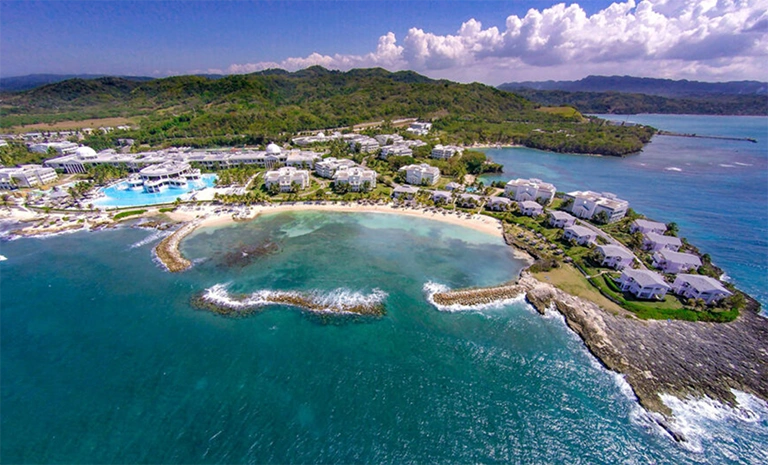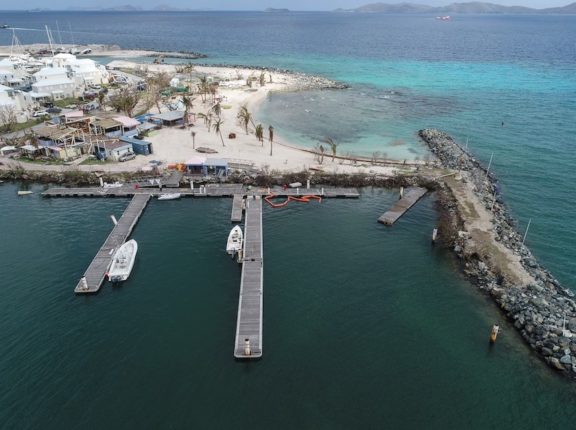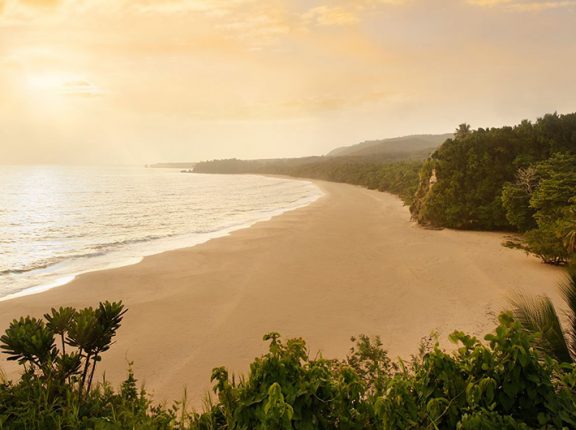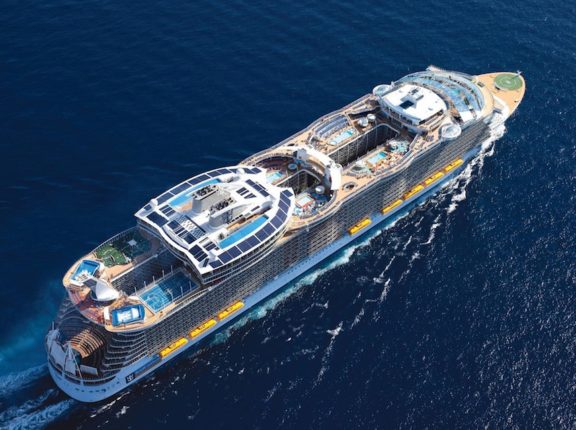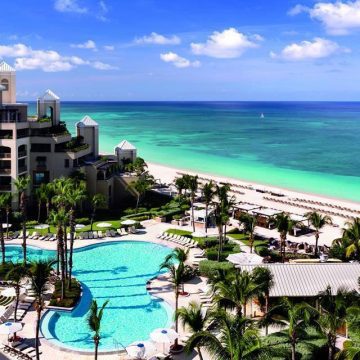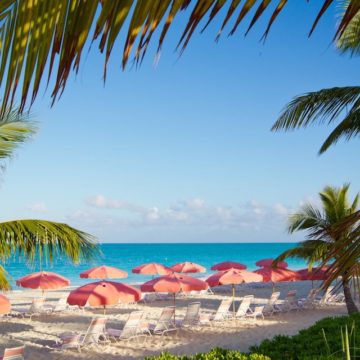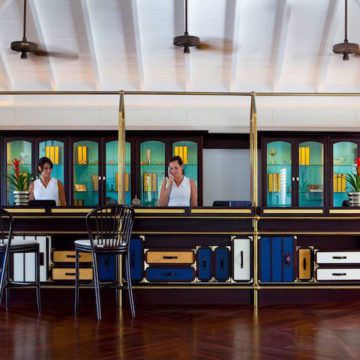Richard Branson Developing Caribbean “Marshall Plan”
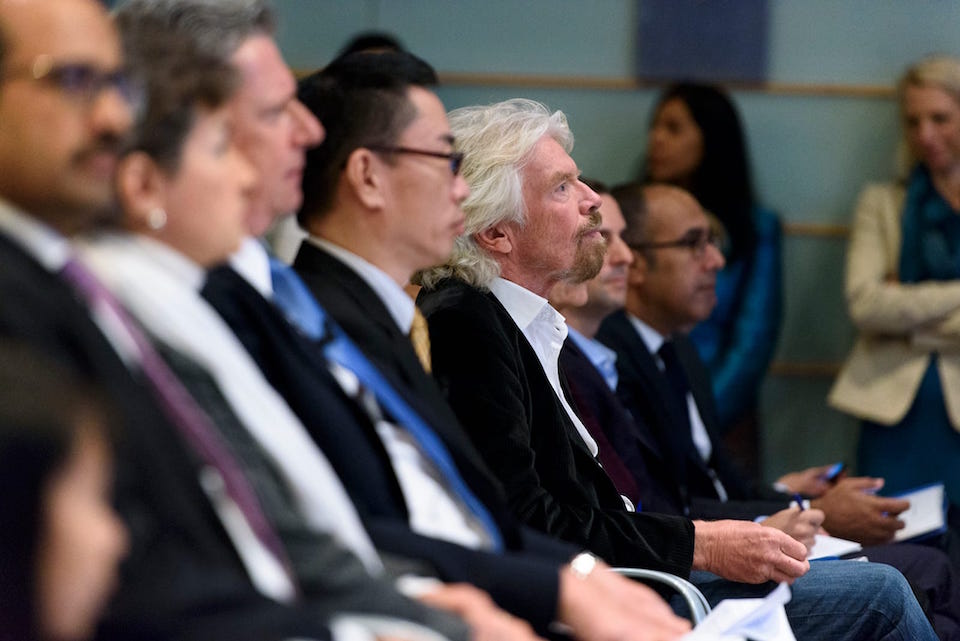
By Dana Niland
CJ Contributor
In the wake of the destruction caused by Hurricanes Irma and Maria, Richard Branson is assembling a team to head up a “Marshall Plan” for the Caribbean.
The idea came to Branson after he was invited to Washington by the Global Facility for Disaster Reduction and Recovery and the U.N. Office for Disaster Risk Reduction, to talk about recovery from the hurricanes, and after he and Prime Minister Keith Mitchell of Grenada organized an initiative to bring together heads of state of the Caribbean, the international community and business leaders to discuss the issues.
The World Bank and Inter-American Development Bank have agreed to fund the plan together.
Branson also held meetings with the head of the IMF, Christine Lagarde, who said that she “would be happy to use her convening powers to help;” the president of the World Bank, Dr. Jim Yong Kim, who agreed to get his team to move “extremely quickly” to develop a plan; and President Moreno of the Inter-American Development Bank, who also agreed to “move speedily.”
He is now in the process of putting a small team in place to move forward.
“I’ve spent much of my time in the last few weeks dealing with the devastating impacts the hurricanes had on the beautiful Caribbean, and trying to find ways in which we can rebuild all that’s been lost and help the affected communities back on their feet,” said Branson.
“I’ve spent much of my time in the last few weeks dealing with the devastating impacts the hurricanes had on the beautiful Caribbean, and trying to find ways in which we can rebuild all that’s been lost and help the affected communities back on their feet.”
“Scientists have highlighted the link between carbon emissions and ocean surface temperatures,” he continued. “When Irma struck, Atlantic and Caribbean waters had reached temperatures of 86 degrees Fahrenheit in some places.”
“Scientists have highlighted the link between carbon emissions and ocean surface temperatures. When Irma struck, Atlantic and Caribbean waters had reached temperatures of 86 degrees Fahrenheit in some places.”
Branson referenced the fact that he decided to ride out Hurricane Irma in his home in the BVI, and said that he felt unprepared for the force and intensity of the storm.
“Irma unleashed the most ferocious winds I’ve ever seen in my life, and it was truly heart-breaking to see the full extent of the devastation across the entire community once the storm had passed,” he said.
“While the last month or so has been agonising at times, I’ve been living in the Caribbean for a long time and know its amazing people well,” he said. Their resilience and spirit are an enormous inspiration. The tasks ahead of us are daunting, but it’s the people who give me hope that the Caribbean islands will bounce back stronger than ever.”
“From Puerto Rico to the BVI and Dominica, this is still very much relief operation. Tens of thousands continue to be without shelter, or access to clean and safe drinking water. These urgent needs must be met, and they must be met quickly. This year’s hurricane season is not over yet, and another storm could strike in the coming weeks.”
Branson called for the community to start thinking beyond emergency relief and turn its attention to the islands’ long-term recovery and reconstruction.
“Resilience was the topic of many conversations I’ve had in the last few weeks,” he noted. “It really comes down to this question: as hurricanes will hit more often and with growing intensity, how can Caribbean countries avoid total destruction becoming the norm?”
Branson is advocating for buildings homes able to withstand sustained and catastrophic hurricane-force winds over longer periods of time, distributing power grids that don’t break down and can be repaired quickly, restoring critical ecosystems like mangrove wetlands and coral reefs that mitigate direct impacts of storms by naturally reducing wave heights and preventing soil erosion, and weaning Caribbean islands off their “irresponsible and costly” dependency on fossil fuels.
“Running much of the region on diesel and other fuels comes with an enormous price tag – the Caribbean’s cost of electricity generation is among the world’s highest, and fuel expenditures consume up to 20 per cent of GDP in some island nations,” he said. “As an investor and entrepreneur, I’ve never seen a more compelling business case than the one presented by more energy-efficient systems that make use of the abundance of the region’s natural resources, like solar or wind. Remember, you don’t have to ship sunshine.”
“As an investor and entrepreneur, I’ve never seen a more compelling business case than the one presented by more energy-efficient systems that make use of the abundance of the region’s natural resources, like solar or wind. Remember, you don’t have to ship sunshine.”
In addition to improving resilience through better systems, Branson called for diversified energy supplies in the interest of the economy, and pointed to the fact that when Jamaica reduced electricity costs a few years ago, it quickly moved up 27 positions on the World Bank’s global Doing Business ranking.
“For the type of reconstruction we all envision, the Caribbean must finally take the leap from 20th century technology to 21st century innovation,” he said. “And we must resist the all-too-familiar impulse to return to business as usual and do the same things as before, simply because they are easy and cheaper in the short term.”
“You can frame this as a formidable political and economic challenge, but I think we can be far more optimistic. With the political will emerging now across the region and the financial commitments needed, I think these island states have a huge opportunity to build greener and more resilient communities than ever before – models of what climate-smart recovery around the world can and should look like.”
Branson noted that to find leadership in the energy sector, you “don’t have to look much further than what is already being done in the Caribbean.”
He pointed to the fact that a few years back, Aruba announced an ambitious strategy to run entirely on renewables by 2020, and the island is already halfway there, and that in Barbados, one in two households are now using solar water heaters– not only reducing electricity cost, but also creating jobs in a budding solar industry.
“I have on various occasions called for a ‘Marshall Plan for the Caribbean’ a commitment from governments, multilaterals, and investors to provide the financing and the guarantees needed to empower Caribbeans to shape their own future and rebuild their nations,” Branson said. “I think the consensus is that it’s got to be a ‘Marshall Plan for a greener, resilient Caribbean.’ We mustn’t lose any time to make this happen.”
